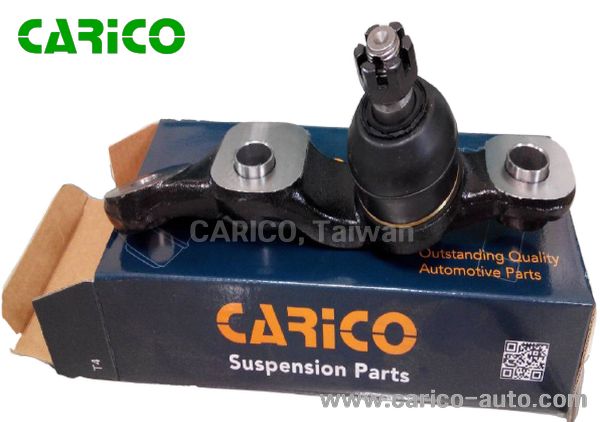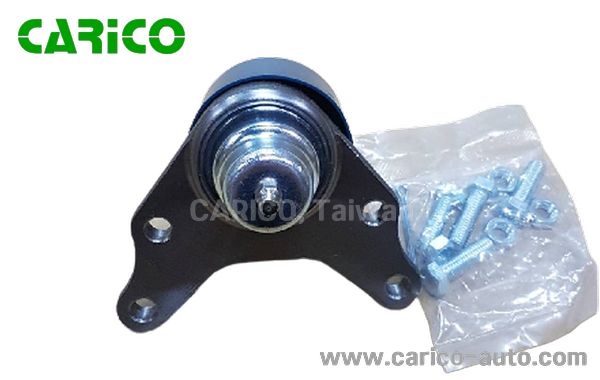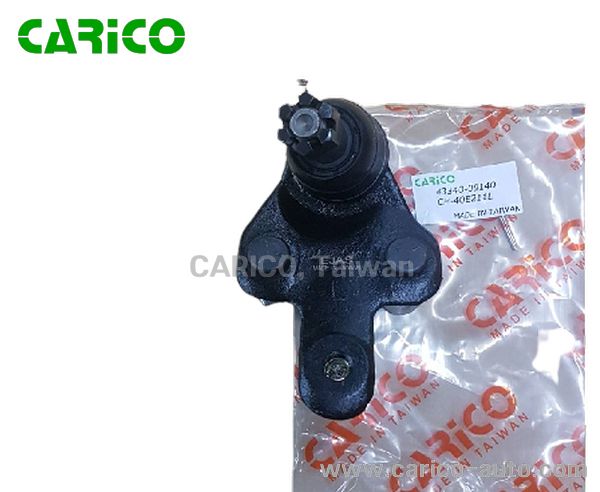2022-01-17
6 Things You Probably Didn't Know About Lower Control Arm Ball Joints

Many people don't know what the Lower Control Arm Ball Joints are, not including car technicians who are tasked with fixing them.
Lower control arm ball joints are more than just the grease-covered things that hold your car up. These little parts can be surprisingly expensive to fix or replace.
You may not know what the Lower Control Arm Ball Joints are, but they can make all of the difference in how your ride feels. Find out 6 things you probably didn't know about these forgotten parts before you travel on or before you come to a conclusion on whether or not it's time to call a technician!
Ball joints are one of the most overlooked components of a suspension system
There are many components in the suspension system that affect the performance in different ways. The tire is one of them, but it is not the only one. Lower control arm ball joints are often overlooked when it comes to suspension systems, but they can also have a huge impact on how well your car drives around corners, and they play a big role in making sure your tires don't wear out too quickly.
Ball joints are used to connect control arms to steering knuckles, shock absorbers to frames, and tie rods to spindles. They are typically flexible metal structures that allow for movement in two axes - up/down and side/side. If there's too much slack or play in these joints, then this movement will cause the control arm to bend which may lead to other problems like worn out parts and an unstable driving experience.
Confusion arises because ball joints are also called ball joints, or sometimes even called "bushings"
Confusion arises when people refer to ball joints as ball joints when they are in fact bushings. Some people also call them bushings, but they are not the same thing.
Lower control arm ball joints are usually used in conjunction with other components, such as suspension systems and steering links, to provide a certain amount of movement or articulation. Bushings are used for the opposite purpose - to restrict movement or prevent it altogether.
Ball Joints are not the same as bushings. Ball joints are an important part of the suspension system in a car. They help connect the control arm to the steering knuckle, and they allow for movement in many different directions.
Bushings, on the other hand, are small pieces of metal inside a joint that is meant to reduce friction or create space between moving parts.
During an inspection of your vehicle, it is important that you differentiate between ball joints and bushings to know what needs to be replaced if anything at all is found wrong with either one of them.
A ball joint consists of an outer spherical metal sleeve with an inner steel bearing that rotates on it
A ball joint is a mechanical device that connects two pieces of rod or shaft. The components are called the “ball” and the “joint”. The joint has an outer spherical metal sleeve with an inner steel bearing that rotates on it. There is no regular arrangement of the bearings in most designs, but there are some that have matching outer and inner sleeves with a set of balls in-between them, this causes a constant force between both ends of the joint, which is what allows for a fluid range of motion.
A ball joint is a mechanical device that connects two pieces of rod or shaft. The components are called the "ball" and the "joint." A joint has an outer spherical metal sleeve with an inner steel bearing that rotates on it. There is no regular arrangement of bearings in most designs, but there are some notable exceptions. The exception usually involves bearings that are stacked one on top of the other to form a cylindrical shape.
The bearing moves back and forth inside to either side as you drive forward or backward
The purpose of the bearing is to allow for the axle to spin freely.
A bearing is a machine element used in rotating or guiding parts, typically those that are rotating or sliding. Bearings are classified broadly as follows:
Self-aligning bearings use a conical sleeve with matching concave surfaces on either side of it to take up any misalignment between the shaft and housing.
Ball bearings are spherical bearings that allow multiple rotations in any given direction. They can be used to improve the efficiency of mechanical systems by reducing friction between moving surfaces, allowing for larger displacements, speeds, and masses over the same amount of time before damage occurs.
The outer sleeve typically has two holes that connect into the control arm and steering knuckle respectively
The outer sleeve typically has two holes that connect into the control arm and steering knuckle respectively. There are many different types of sleeves, including one-piece sleeves, which are made by casting aluminum or steel around a pressing, welded sleeves, which are made by welding together plates to form an opening for the axle rod to pass through, and bolt-together sleeves, which are made by bolting together plates with openings for the axle rod to pass through.
These sleeves are where the ball joint at the top of the control arm attaches to, and also where the steering knuckle attaches to.
These sleeves are typically made out of metal, which can be an issue when they rust. When this happens, it can cause a lot of noise in certain turns or even make your vehicle's front end shake violently when you apply pressure.
Therefore, if you want to keep your vehicle's suspension aligned properly and prevent unnecessary wear, it’s important to inspect your outer sleeves periodically for any signs of rusting or wear.
When replacing a ball joint, it is important to replace both sides at the same time
If you replace only one side, the other side will wear out and do not function properly.
Replacing a ball joint is a relatively easy task. You can change it in a few minutes by removing the bolts and replacing the lower control arm ball joints with a new one. All you need is a wrench and a socket wrench, so it won't take much time to do.
Replacing both sides at the same time is important because if you replace only one side, then there isn't any support on that side of your car. The other side will wear out much faster than it would have if you replaced both sides at once.



